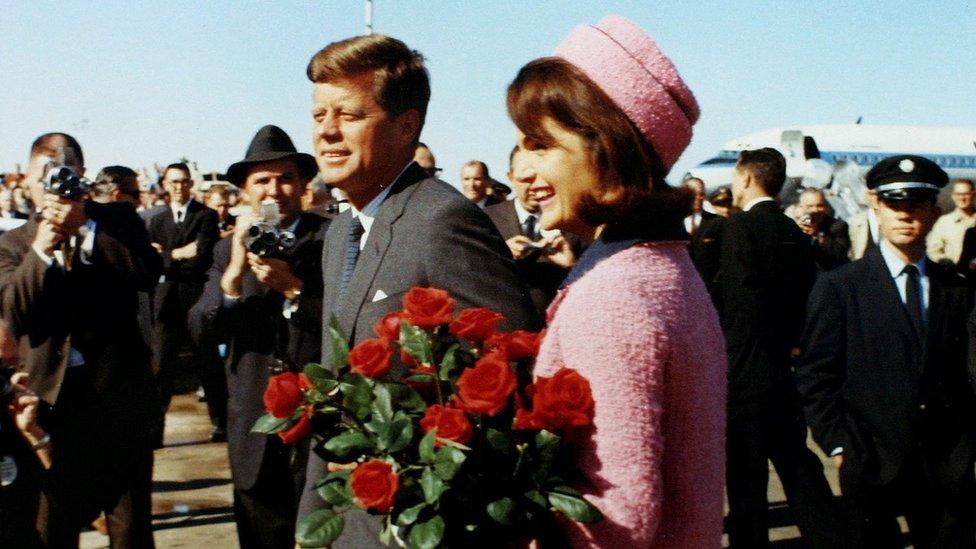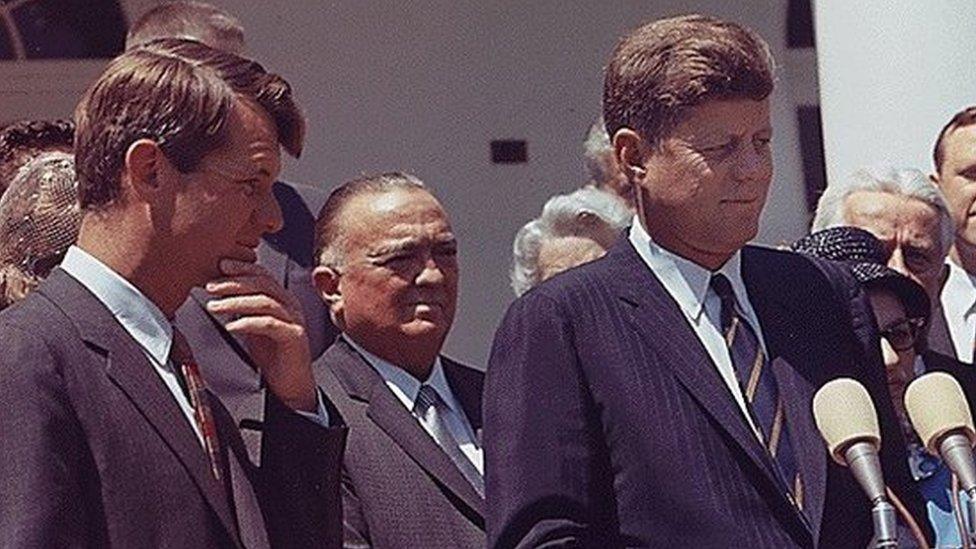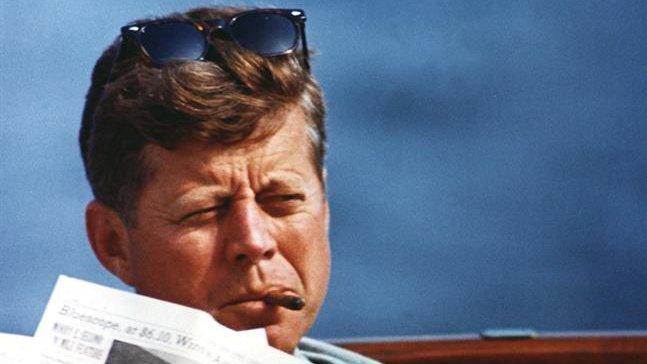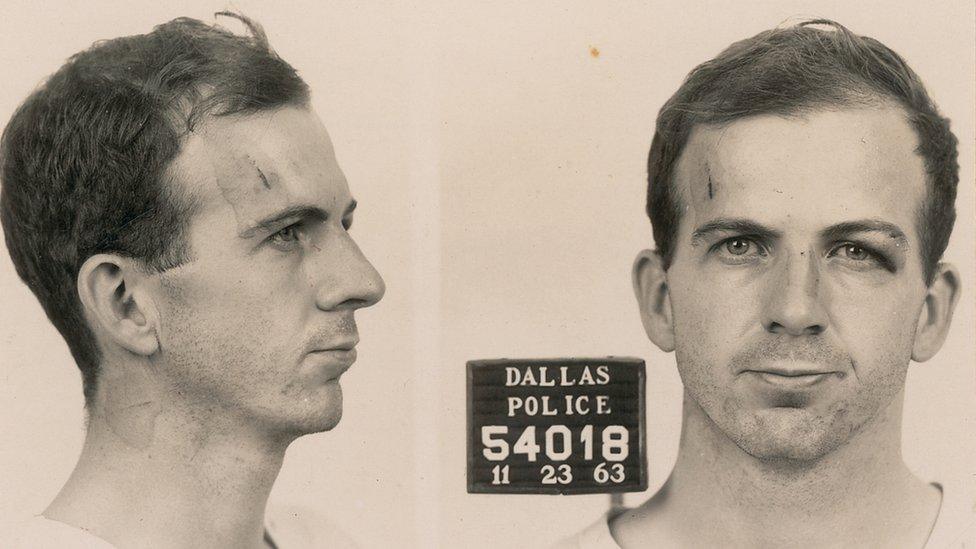Cambridge News 'received anonymous JFK assassination tip-off'
- Published

The president and first lady were in Dallas when the assassination happened
A British local newspaper received an anonymous call about "some big news" in the US, shortly before President John F Kennedy was assassinated, according to documents.
A memo dated 26 November 1963 said the call was made to the Cambridge News at 18:05 GMT on 22 November 1963.
This was 25 minutes before Kennedy was shot in Dallas, Texas.
A copy of the memo was released by the National Archives in the US in July, but had gone unreported.
It was revealed again when the latest batch of documents relating to the assassination were released on Thursday.
A memo has revealed a call was made to a UK newspaper before John F Kennedy was shot dead
President Kennedy was shot as he rode in a presidential motorcade in Dealey Plaza at 12:30 Central Standard Time, which is six hours behind Greenwich Mean Time.
'Sound and loyal'
The document, from the deputy director of the CIA James Angleton to the FBI director, J Edgar Hoover, said the British Security Service (MI5) had reported that the call was made to the senior reporter of the newspaper.
The memo read: "The caller said only that the Cambridge News reporter should call the American Embassy in London for some big news and then hung up.
"After the word of the President's death was received the reporter informed the Cambridge police of the anonymous call and the police informed MI5.
"The important point is that the call was made, according to MI5 calculations, about 25 minutes before the President was shot.
"The Cambridge reporter had never received a call of this kind before, and MI5 state that he is known to them as a sound and loyal person with no security record."

The life and death of JFK (r) continues to fascinate more than half a century later
The memo added that similar anonymous phone calls "of a strangely coincidental nature" had been received by people in the UK over the past year, "particularly in connection with the case of Dr Ward" - potentially a reference to Dr Stephen Ward, one of the central figures in the Profumo affair, external.
Current staff at the Cambridge News said they did not know who took the call, but they were speaking to people who worked there in the 1960s to find out.
Reporter Anna Savva said hearing about it was "completely jaw-dropping".
"It would have been common knowledge in the office who took the call, but we have nothing in our archive - we have nobody here who knows the name of the person who took the call," she said.
In a video posted on the newspaper's website, external, chief reporter Chris Elliott, said "no one has ever been able to establish whether that call was actually made" but the fact that it might have been made came to light in the 1980s.
"A London solicitor, Michael Eddowes, started to investigate a document he found allegedly from the CIA," he said.
"In that document it was mentioned a call had been made to the Cambridge News warning that something big was going to happen...
"We don't know whether that call was ever made, we don't know which reporter took the call and we don't know what the reason possibly could have been for anyone ringing a newspaper in Cambridge about it."
Mr Elliott said Mr Eddowes, who died in 1992, was "convinced there was some kind of conspiracy" and the call might have been one of a number made to newspapers and other media to try to foster the idea that there was a conspiracy to kill the president.
- Published27 October 2017

- Published25 October 2017
